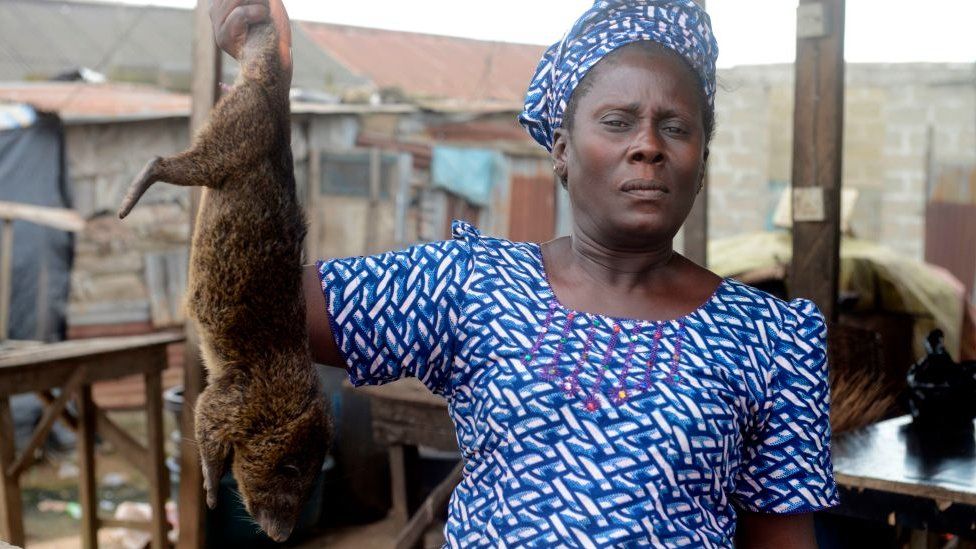Monkeypox: Nigeria bans bushmeat to prevent virus spread
SharecloseShare pageCopy linkAbout sharingImage source, AFPThe Nigerian government has banned the sale of bushmeat as a precaution to stop the spread of monkeypox.Six cases have been detected in the country this month bringing to 21 the number of confirmed infections this year, the authorities said.Experts say it is possible that the virus can be caught by eating meat from an infected animal. But this is not the most common transmission route.Monkeypox, a mild viral infection, is endemic in Nigeria. It occurs mostly in remote areas, near tropical rainforests. The country has had sporadic cases since an outbreak in 2017. The virus was found mainly in the south of the country but, since 2020, it has spread to central, eastern and northern areas, the World Health Organization says.Out of the 21 confirmed cases this year, there has been one reported death of a person who had underlying conditions. But earlier this week the health authorities said “there has been no evidence of any new or unusual transmission of the virus, nor changes in its clinical manifestation documented”.What is monkeypox and how do you catch it?Africa Live: More on this and other stories from the continentScientists are struggling to explain a recent rise in monkeypox cases in Europe, which have not been linked to travel to the African countries where it is endemic. But there are suggestions the virus has been spreading from person to person for some time undetected.Monkeypox can be spread when someone is in close contact with an infected person. The virus can enter the body through broken skin, the respiratory tract or through the eyes, nose or mouth.Those infected in the UK have been advised to avoid having sex while they have symptoms.The animals that can pass on the virus are infected rodents, including rats and squirrels. According to health experts, this can happen if someone is bitten or touches an infected animal.Bushmeat refers to any wild animal that is killed for consumption, including antelopes, chimpanzees, fruit bats, rats, porcupines and snakes.In some remote areas of Nigeria it is a vital source of food, while in others it has become a delicacy.There are many bushmeat markets in Nigeria and it is unclear how the ban will be implemented.The ministry of agriculture also directed vets and its other officials to increase surveillance aimed at detecting any possible cases of monkeypox in animals.Operators of zoos, parks, conservation areas and recreational centres were reminded to make sure there was no contact between animals and humans
Read more →
